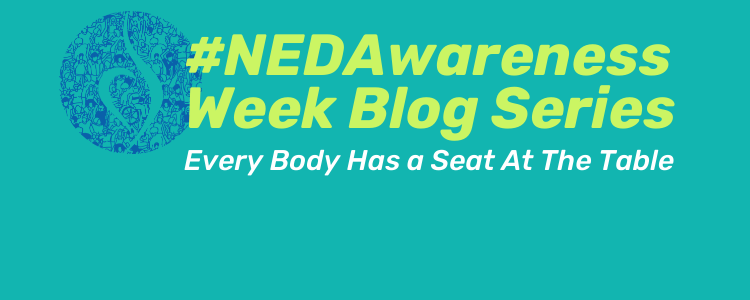The Importance of Communication in Recovery
What I’ve learned in ten years of therapy is this: Honesty and communication are two of the most essential components of eating disorder recovery. There are, inarguably, a number of additionally crucial tenets of recovery; for the sake of this entry, however, I will argue that few things offer as much consistent inner clarity as communicating openly with a therapist and, furthermore, yourself.
Many of us in recovery understand that an eating disorder thrives by encouraging the mind to turn on itself — to nourish lies about identity, appearance, and how we are perceived by others. Deception is key to the maintenance of an eating disorder. More than that, we understand that when an eating disorder is feeding off of deception, a lack of communication and openness is further compulsory to its survival. Ultimately, one’s eating disorder banks on the idea that you’ll remain an island — isolated both physically and mentally, enveloped in dishonesty. What I’ve found in my own personal experience with anorexia is that only when I opened myself to others (and to myself) was I able to fully begin the healing process.
In the beginning, being honest in therapy meant holding myself responsible for eating disorder behaviors I’d engaged in and breaking down the beliefs fostered by a brain held captive by anorexia. Accountability was key, and I worked to understand every facet of this mental illness. Ten years out, my perception of my eating disorder is relatively fully realized, and my time in therapy is now spent honing in on the root — what are the beliefs that led to an eating disorder? What’s still keeping these last bits of it around? What are the thoughts I hold now that keep me from creating meaningful relationships or regarding myself in a positive light? What recovery teaches us is that, typically, thinness is rarely the endgame, food seldom the salvation or enemy we seek. It’s in discovering and walking through these issues that underlie our eating disorders — insecurity, anger, depression, trauma — that we’re theoretically able to move from struggling to break from our eating-disordered mindset to maintaining healthy thoughts that allow us to thrive.
The darkest and most challenging moments in my recovery process were the ones in which I was most dishonest. I have spent precious time and energy deceiving therapists, family members, and myself, as those with an eating disorder are wont to do. It isn’t helpful to feel angry with yourself or to experience regret when you sort of “come to” after these moments of deception, though — there is a real feeling of captivity that is entrenched in eating disorders, and it is imperative to recognize it and to free yourself of the shame that may be associated with these moments. Moving forward is the crucial part — now that you’ve seen clearly these moments of dishonesty, what can move me forward and in the right direction? How can we break from this emotional inertia? Here is where I again pose honest communication with a professional.
This, of course, is not as simple as I may be making it sound. First, there are the barriers surrounding what should be the simple logistics of acquiring a therapist — even if you have the means, it’s a challenge to find a therapist that’s in-network or that you may feel is the right match for you. It’s a process of trial and error, and that in and of itself can be mentally and physically draining. For those who do not have the means, you’re likely left bargaining for sliding-scale rates or may have to settle for a professional who doesn’t specialize in eating disorder treatment. Perhaps you’ve opted to forego treatment altogether. So, there is a fundamental lack of accessible resources here that creates a truly surreal logistical barrier for those without the health insurance or financial means necessary to begin therapy.
This is where those of us in privileged spaces must step up and speak out for those without the means we’ve either been born with or have worked to access. I propose donating to BIPOC therapy funds, volunteering with nonprofits and helplines that provide free mental health resources, and continuing to educate yourself on how to best elevate the voices of marginalized communities. It may not feel entirely simple, but few parts of lasting, meaningful recovery do.
Kyle Davis studied English at Fordham University in Manhattan and is currently a creative producer for the website BuzzFeed.com. He has been in recovery from anorexia for ten years, and has found great success in therapy and antidepressants. In his spare time, Kyle enjoys wandering aimlessly throughout New York, making friends, and discovering new music.





